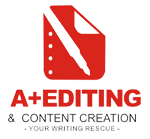Authors must know where they will take their articles before they write a single word. Every journal has its requirements, type, and style of the article for publication.The needs of the audience of that particular journal should be a subject of concern in the writer’s mind.To choose a journal, pick the main ones in your field of study, those you tend to cite more frequently, and those that your colleagues will read.
Avoid Wasting Time and Effort
Find a journal beforehand to avoid wasting time looking for a suitable one to send your work to, or/and rewriting it to fit a particular journal’s requirement. Your article will go through an editor and reviewers who will determine out whether it’s suitable for publication.
As a writer, you should think about the editor and reviewers as your audience and address issues that they will have in the minds. These concerns include the article’s readability, whether it fits the journal, if it follows the required structure, and if it contributes to the study’s field of knowledge.
Most journals will not accept old data. They will look for ideas and information that is contemporary for publication.
Know the Journal You Want to Submit To
After choosing your target journal, go through their website, and find the author guidelines section. Look at the requirements, such as how the articles should be presented and submitted. Please pay attention to the number of words, their structure, headings, and referencing system. You can check on the published articles, especially those relevant to the kind of your research.
Make Sure Your Article Is Clear
Use plain language to make your writing accessible. Easy readability makes the article easy to understand. Think about your audience and present your ideas to them in a simpler way.
Make Sure Your Article Is Original
Make sure your exceptional point of view stands out through brilliant communication. Always have something new to say, even if you’re building on a concept that is already in existence. Understand it fully, say it convincingly, and reference what happened previously.
Look at Other Literature in Your Field (And Reference It)
Tell your audience about how your article relates to other published work. You don’t need to review all other relevant published literature, Show your readers how you are building on the preceding work.
Stick to The Point
Brilliant articles or papers generally have points to make. They make that point strongly, position it in the field, and backitup with powerful evidence.
Writing for publication is a talent that is improved with practice and developed in gradients.Irrespective of how the editor responds to your first article, try not to feel downhearted. Follow the above guidelines, and you’ll succeed.
